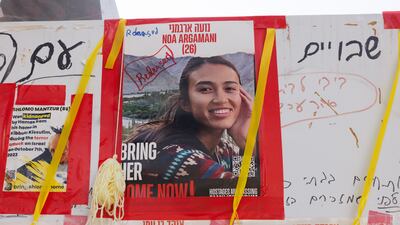Responding to Israeli forces’ Saturday rescue of four hostages held in Gaza, the country’s Prime Minister, Benjamin Netanyahu, said his troops were “performing in the most valiant and moral way to end this war with a victory against these killers and against these kidnappers, and we shall prevail”. And yet, few can argue that the killing of tens of civilians in one operation is "valiant" or "moral". For a political leader in dire need of a win after months of unrestrained war, overseeing a divided Cabinet and facing international condemnation, this operation – which has come at the cost of so many Palestinian lives – may not be the victory it appears to be at first glance.
Although no one should dismiss the trauma experienced by Israeli families whose loved ones were abducted by Hamas militants on October 7, the number of deaths that took place on the same day as the rescue are startling, even by the brutal standards set by this war. More than 200 Palestinians, many of them women and children, were killed in Israeli attacks in central Gaza, the enclave’s Health Ministry said. Palestinian news agency Wafa reported that Israel bombed Nuseirat refugee camp, the area around Al Aqsa Martyrs Hospital in Deir Al Balah, Al Moghazi Camp, Al Zawayda and Buriej camp.
Israel’s operation in Nuseirat camp, something that the army said involved weeks of planning and hundreds of troops, is the largest since the war began on October 7. It brings the total number of hostages rescued to seven but a more successful strategy to secure the release of kidnapped Israeli civilians has involved mediation and negotiations; in November, 105 hostages were freed in exchange for more than 200 Palestinian prisoners and a seven-day ceasefire. If Israel’s leadership thinks that overwhelming firepower instead of painstaking talks is the key to “victory”, then the morale boost offered by the return of these four hostages will be fleeting.
Instead, there is the possibility that pressure from the Israeli public for the similarly forcible retrieval of the country’s remaining hostages will grow. More rescue operations that incur mass casualties among Gaza’s civilians, and potentially Israeli hostages, will further stoke Palestinian anger, fuel outrage around the world and accumulate more material for ongoing international investigations and court cases. This is nothing to say of the danger that Israel’s war in Gaza already poses to the hostages, three of whom were killed in December by Israeli troops in an incident that shocked the country.
Hamas and other Palestinian factions also have questions to answer. Holding on to civilian hostages – who should never have been abducted in the first place – is not only a war crime, it also gives Israel the continuing excuse to turn Gaza into a free-fire zone, the brunt of which is felt by Palestinian non-combatants. If the remaining hostages are freed with this level of force, it will further expose the moral and strategic dead end of such tactics.
Instead, a real victory for Israelis and Palestinians alike would be an immediate ceasefire that would help keep the hostages alive, allow much-needed aid to enter Gaza and pave the way for a mediation process that could also secure the release of Palestinian detainees currently being held in Israel. As frustrating and tortuous as those talks would be, they are preferable to the kind of operation that reunited four families but left a trail of destruction and grief in its wake.


